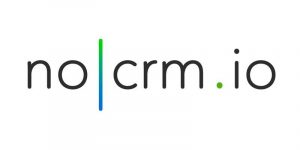
For a time, the world’s most populated zip code (according to data entered online) was 90210. Not because of the actual number of people living in the small and exclusive enclave of the rich and famous, but instead because large numbers of people outside of the US, when asked to enter their zip code to access content or complete a form, simply entered the zip code referenced on hit 90’s tv show, ‘Beverly Hills 90210’.
Now, why would this small snippet of pop culture have anything to do with CRM? The answer is because it is symptomatic of practices we see across many businesses today. The vast majority of companies using CRM software do so to organize their prospects and manage the sales pipeline – using the data recorded to forecast future revenues and plan accordingly. As a theory it’s flawless.
In execution, however, we hear numerous complaints; the sales team is frustrated by the onerous, administrative task of updating the information and so, often doesn’t, or if they do, they rush to meet a deadline, provide the very least required and move on.
In the best case scenario here, the c-suite is relying on outdated or incomplete information to make forecasts and plan resources. In the worst case, the data is simply wrong – from telephone numbers like +10,000,000,000 to projected values of $555,555. While some of these inconsistencies are more significant than others, the fact remains that any business plan built on them, will be built on less than solid.
Marketing Technology News: Paysafe Announces YouTube Partnership
It would be wrong though, to point the finger at the sales team when the real challenge is the solution you’ve picked for them. Amazing salespeople are not sitting at their desks completing data entry and if you think about it, why would you want them to? High-performing salespeople are motivated by closing deals and meeting goals. They like action, relationship building and the art (and science) of persuasion, and they’re right. Those short-term objectives are what they are judged against. If they spend all of their time on a SaaS platform and the result is no sales, neither you nor they will be happy.
No statistic or segmentation in the world will close a deal faster – so why do we constantly ask them to spend their time filling in data to populate reports to document them? If we expect salespeople to fill in data there has to be a payoff for them – moving deals along and closing them more quickly is all that matters. Any good CRM will engage them to quickly create the lead and the most appropriate follow up to ensure leads are handled efficiently, the salesperson spends little-to-no time on the platform and the sales manager has visibility on the key metrics that determine success.
Focusing on the approach to easy lead creation from multiple sources and setting calendar synced follow-ups for the next step ensures that the system is populated by all available leads with details on the deal flow. This allows both salespeople and managers to have concrete data on the number of incoming leads, their progress and the speed with which they are progressing through the pipeline.
Marketing Technology News: Mono Solutions Joins Bauer Media Group to Strengthen SME Marketing Services Across the Globe
This again is where a traditional CRM approach fails them – the contact-first approach has no mandatory next step assigned which means even the most conscientious of sales stars is likely to forget to call and therefore miss closing the deal. Putting the data in one place, and linking leads to calendar actions emulates the sales thought process and means they can log activity and edit the lead status every day. By building these personalized sales paths for each lead, sales team are able to see a complete view and history of each lead – useful for the individual but invaluable for team leads trying to manage resourcing and share leads across teams.
From a management perspective, this enables the creations of teams and assignments in much more customized and transferable way – as people join and leave the team permissions can be set to help them view and act on the lead history. Equally important for growing sales teams is an ability to integrate with third-party apps – at the end of the day we are all people and we have individual preferences – from Gsuite to MailChimp to Quickbooks to Slack. Tools that are tech agnostic are much more likely to be used and updated meaning that managers have a much clearer vision of the lead flow and are better able to manage and adapt to changes as they happen.
Traditional CRMs are built for marketers and managers and yet, we constrain the sales team to work with them, contrary to their intuition and skill sets. By moving to a lead-first rather than a contact-first approach, the c-suite can empower sales teams to focus on selling, and, while doing so ensuring that the data they rely on provides the most comprehensive view of the deal flow to inform future plans.
Marketing Technology News: Gartner Survey Shows Inside Sales Organizations Risk Losing 24% of Employees This Year











